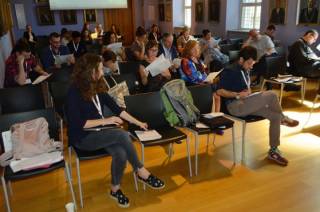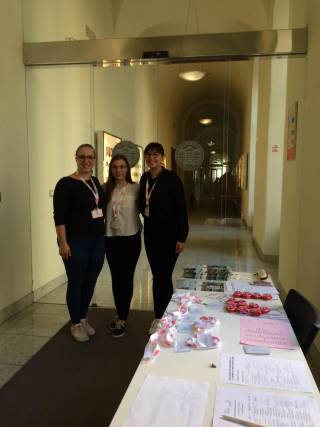OBJECT AGREEMENT ACROSS BARRIERS 2019
Object Agreement Across Barriers 2019: Conference Program
Date: 16-17 September 2019
Location: Rektorat, University of Zagreb, Trg Republike Hrvatske 14, 10000 Zagreb, Croatia
KEYNOTE SPEAKERS
Kristina Riedel (University of the Free State)
Mark Baker (Rutgers University)
Markus Steinbach (Georg-August-Universität Göttingen)
Martina Gračanin-Yüksek (Middle East Technical University)
Object Agreement Across Barriers Conference 2019 continues the tradition of Resolving Conflicts ABC 2017 (Dubrovnik), Ellipsis ABC 2016 (Sarajevo) and Agreement ABC 2015 (Zadar) that preceded it, in inviting researchers to overcome theoretical, empirical and even modality barriers in their understanding and modelling of agreement phenomena.
Object Agreement ABC 2019 is organized as part of the Leverhulme project Agreement Mismatches in Experimental Syntax: from Slavic to Bantu in collaboration with the local Croatian Science Foundation project The Building Blocks of Croatian Mental Grammar: Constraints of Information Structure (MEGACRO). Agreement Mismatches in Experimental Syntax: from Slavic to Bantu studies the patterns of gender agreement in coordination with a uniform methodology in six locations across South Slavic area and three locations across South Africa to enrich, strengthen and reinforce the comparative analysis of two typologically unrelated language families by means of the experimental methodology.
Two persisting questions in the literature on object agreement are: (i) which objects can undergo agreement and under which circumstances (Kalin 2018); and, (ii) what is the nature of the object marker – is it an agreement or clitic (van der Wal to appear). Both questions ask for special attention as the object marking is widely attested in a large number of typologically distant language families under shared conditions. For examples, the notorious Romance PCC constraint shares a relevant property with certain Bantu object marking languages, namely that the constraint arises in the context of indirect objects (Riedel 2009). The cross-family parallel extends to the optionality of direct or differential object marking phenomena standardly argued to be driven by semantic-pragmatic features such as animacy or specificity, although recently reanalysed in terms of information structural properties such as topicality or contrastive focus (Mursell 2018). At the same time, comparison of morphologically distinct languages facilitates exploration of the nature of the object marker, and the typological inticate Semitic and other morphologically rich languages open new perspectives on the underlying skeleton supporting the objects that undergo agreement.
Moreover, in spite of the standard analysis of languages such as Slavic being non-object marking, the conference invites authors to consider an alternative approach: first, whether object clitics can be viewed as the result of a structure that doubles their associated argument, as this has been treated as agreement. Second, whether effects like the PCC (and especially reversals) can be seen to involve agreement with the two internal objects (Stegovec 2017). Third, whether relative pronouns that match in case can be thought of as agreeing with an object (Gračanin-Yüksek 2013). And finally, whether unaccusative subjects, if treated as deep objects, can be thought of as manifesting object agreement depending on the timing. It is precisely trying to think about whether and if all of these, and related processes are indeed agreement and are indeed object agreement, that will lead to thinking about object agreement as notion across barriers. The questions are even more pertinent as they extend across modalities to sign languages (Pfau, Salzmann and Steinbach 2018, Börstell 2019).
OAAB2019 conference is open for contributions from varying perspectives as the title refers not only to syntactic barriers and domains (which are of great interest, e.g. long-distance object agreement, object relative clauses, object clitics or object agreement into coordinate phrases) but also across disciplinary barriers (e.g. Slavicists, Bantuists, sign language researchers) that bring theoretical excellence and a new empirical domain to a new part of the language map for the discussion of object agreement. Considering the extent and layering of the topic, the conference invites clearly written and theoretically innovative submissions for talks with the potential to have an empirical and experimental impact on furthering our understanding of object agreement resolution in all areas of theoretical linguistics (across any theory), comparative linguistics, typological linguistics, sign language, psycholinguistics, neurolinguistics, language acquisition, and clinical linguistics.
The selected contributions will be considered for submission for a special issue of Linguistic Vanguard.
Information for presenters
Please note that the Conference oral presentations have been appointed 40 minutes slots, 30 minutes for the presentation followed by 10 minutes for discussion and questions from the audience. Please check Conference Program for details on the time and date of your presentation.
- The conference venue is equipped with a computer, projector and loudspeakers.
- The language of the conference is English.
Abstract Submission
Click HERE or on link https://easychair.org/conferences/?conf=oaab2019 to submit an abstract using EasyChair.
NEW Deadline for Abstract Submission: 15 May 2019 > 25 May 2019
Notification of Acceptance: 30 June 2019
Program Publication: 1 July 2019
- Abstracts are invited for either an oral presentations (40 min + 10 min) or a poster presentation.
- Abstracts may not be longer than 2 pages in A4 format (including references) with 2.5 cm margins on all sides, single-spaced with a font size not smaller than 12pt. Examples, tables, graphs et cetera are to be intertwined in the text in the appropriate place and not collected at the end.
- Submissions are restricted to a maximum of one single-authored and one co-authored abstract (or two co-authored abstracts) for both events.
- The abstracts must be anonymous and not identify the name or affiliation of the author(s) in the abstract, the title, or the name of the document. Abstracts should be submitted as .pdf files with one word from the title as the file name.
- Submissions will be anonymously refereed.
Registration fee
Click HERE or on link https://forms.gle/yswRMkgJ3NgoyVhcA to register for the conference.
Early Registration: before 15 July 2019: €70
Late Registration: after 15 July 2019: €90
Reduced conference fee for participants without a presentation (i.e. without poster or presentation): €30
- Please note that we CANNOT accept on site cash payments, the payment should be made by bank transfer using the details below.
Please do NOT forget to add the reference number as otherwise we will not be able to locate your payment.
- Please send your payment confirmation details to Anita at anita.peti-stantic@ffzg.hr.
Filozofski fakultet Zagreb
Ivana Lučića 3
IBAN: HR1823600001101311177
SWIFT: ZABAHR2X
VAT: HR90633715804
Refrence number: 31-270-2166
Social Events
Conference organisers will host two Social events listed below. Please register your interest to join us at the Social events when filling out the Registration form.
- Guided tour of Zagreb Old Town and city center (free)
- Time: 17h, 15 September 2019
- Meeting point: Trg bana J.Jelačića in front of the ban J.Jelačića statue
- Conference Dinner (€25 to be paid with Registration fee)
- Time: 19h, 17 September 2019
- Location: Klub Književnika, Trg bana J.Jelačića 7/1 (Entry through Harmica)
Local information
- Travel: Zagreb has an international airport with daily direct flights to many European airports. To get to the city center from the airport you can take the airport shuttle bus for 30HRK (cca. €4.5) (Timetable: http://www.plesoprijevoz.hr/en/page/timetable). The buses run every 30min outside the airport terminal. Note that the bus main station is a train ride away from the city centre. Uber and other taxi services are available in Zagreb. Zagreb is equally well served with a train network from European cities.
- Accommodation: Hotels and other types of accommodations should be easy to find as Zagreb offers a wide range of hotels, hostels, airbnb and other types of room/apartment rentals.
- Zagreb Tourist Board
Conference Committee
Anita Peti-Stantić (University of Zagreb)
Andrew Nevins (University College London)
Mark de Vos (Rhodes University)
Jana Willer Gold (University College London)
Local organisers
Anita Peti-Stantić (University of Zagreb)
Jelena Tušek (University of Zagreb)
Contact: j.willer-gold@ucl.ac.uk
Selected Bibliography
Arregi, Karlos, and Nevins, Andrew. 2012. Morphotactics: Basque auxiliaries and the structure of spellout. Dordrecht: Springer.
Baker, Mark. 2008. The Syntax of Agreement and Concord. Cambridge Studies in Linguistics. CUP.
Bonet, Eulàlia. 1991. Morphology after Syntax: Pronominal Clitics in Romance. Doctoral dissertation, MIT.
Börstell, Carl. 2019. Differential object marking in sign languages. Glossa: A Journal of General Linguistics 4(1), 3.
Gračanin-Yüksek, Martina. 2013. The syntax of relative clauses in Croatian. The Linguistic Review 30(1): 25 – 49.
Kalin, Laura 2018. Licensing and Differential Object Marking: The view from Neo-Aramaic. Syntax 21(2): 112-159.
Matasović, Ranko. 2018. An areal typology of agreement systems. Cambridge: Cambridge University Press.
Mursell, Johannes. 2018. Object marking in Swahili is topic agreement. Jezikoslovlje 19(3), 427-455.
Nevins, Andrew. 2007. The representation of third person and its consequences for person-case effects. Natural Language & Linguistic Theory 25: 273-313.
Pfau, Roland, Salzmann, Martin and Marcus Steinbach. 2018. The Syntax of Sign Language Agreement. Common Ingredients but Unusual Recipe. Glossa: A Journal of General Linguistics 3(1), 107, 1-46.
Riedel, Kristina. 2009. The Syntax of Object Marking in Sambaa. A comparative Bantu perspective. Doctoral dissertation, Leiden University.
Roberts, Ian. 2010. Agreement and Head Movement: Clitics and Defective Goals. Cambridge, Mass.: MIT Press.
Stegovec, Adrian. 2017. Personality Disorders: The PCC and Two Kinds of Clitic Reordering in Slovenian. In Proceedings of the 24th Formal Approaches to Slavic Linguistics conference (FASL), eds. Y. Oseki, M. Esipova, and S. Harves, 342–62, Michigan Slavic Publications: Ann Arbor, MI.
van der Wal, Jenneke. to appear. The AWSOM correlation in comparative Bantu object marking. In Katharina Hartmann, Johannes Mursell, and Peter W. Smith (eds.), Agree to agree: Agreement in the Minimalist Program. Open Generative Syntax, Language Science Press.
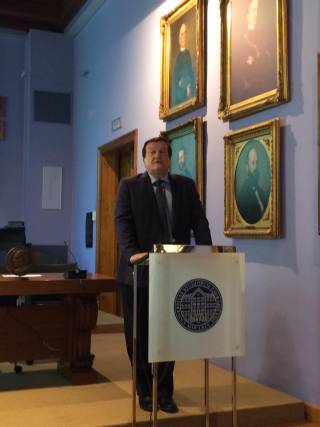 | 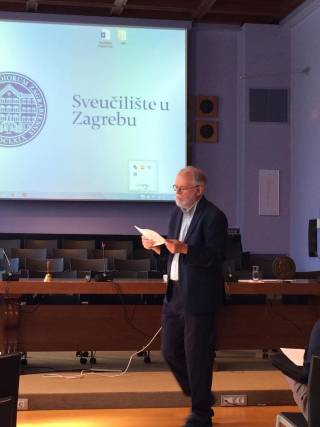 | 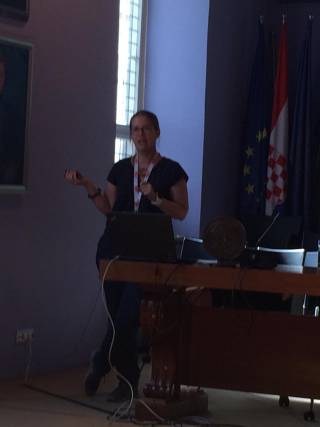 | 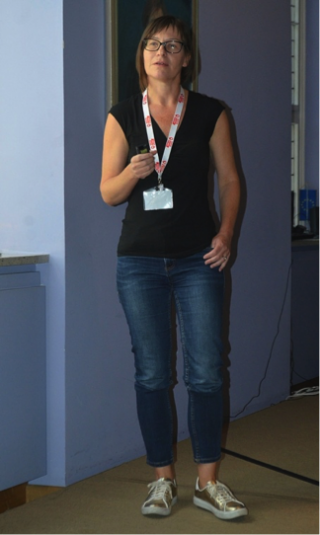 | |
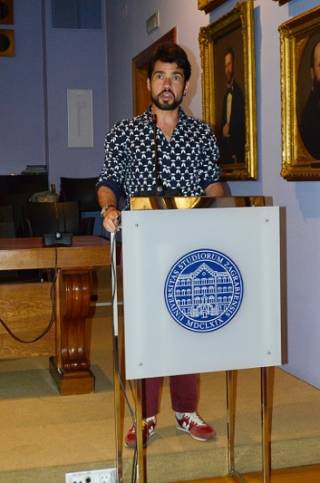 | 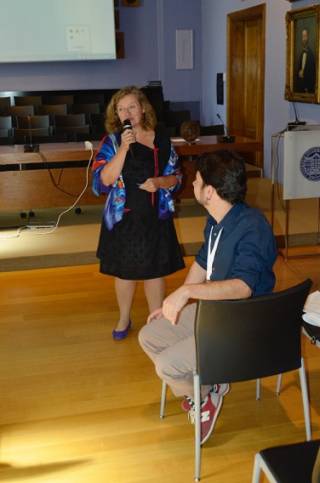 | 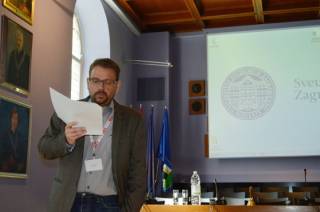
| ||
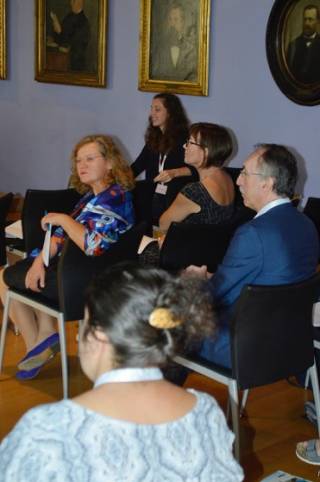 | 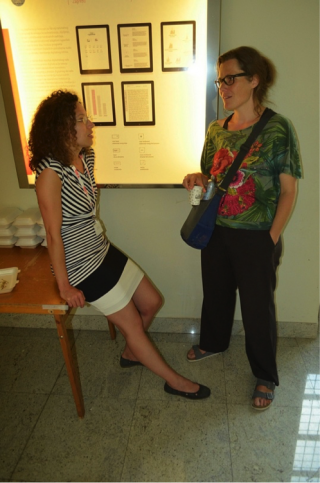 |
| ||
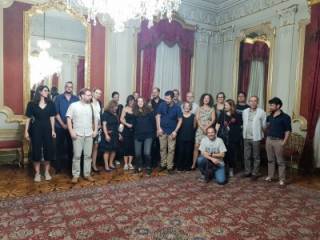 | 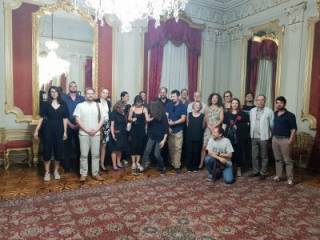 | 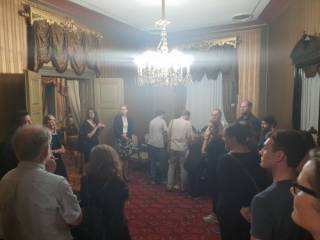 | ||
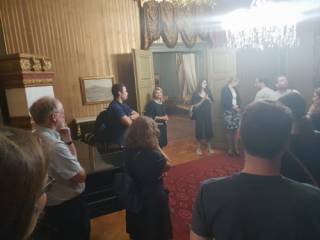 | 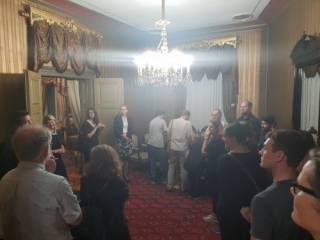 | 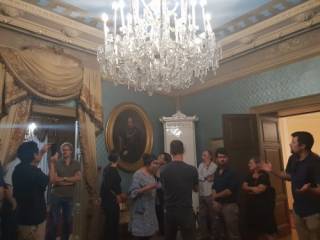 | ||
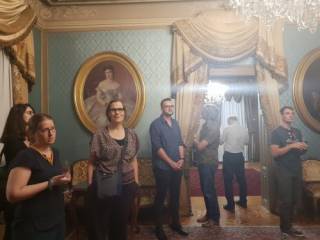 | 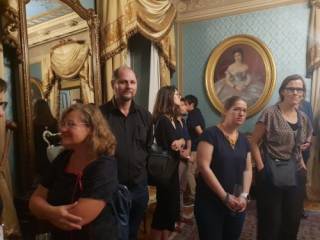 | 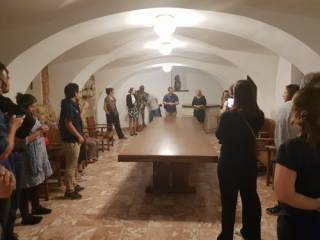 | ||
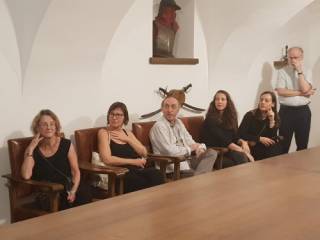 | 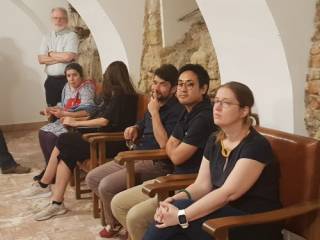 | 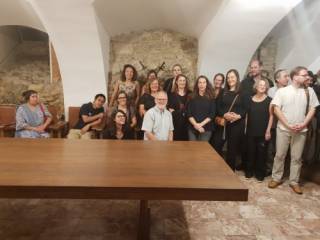 |
 Close
Close


